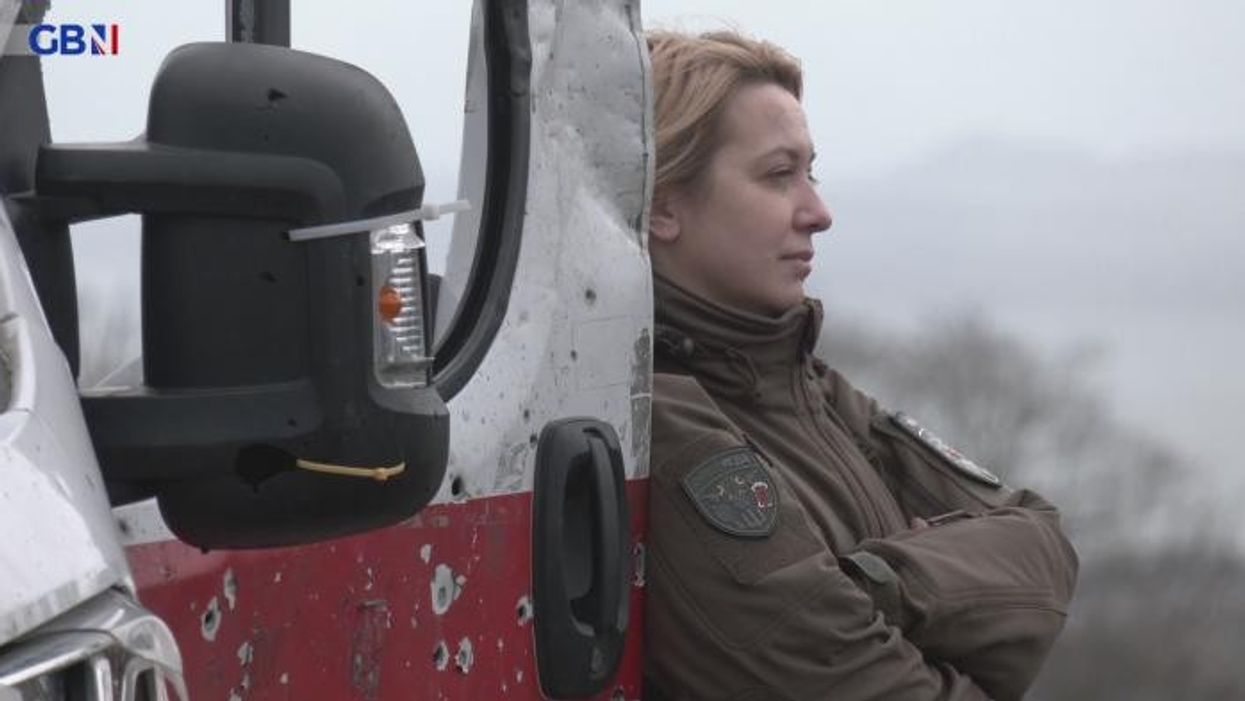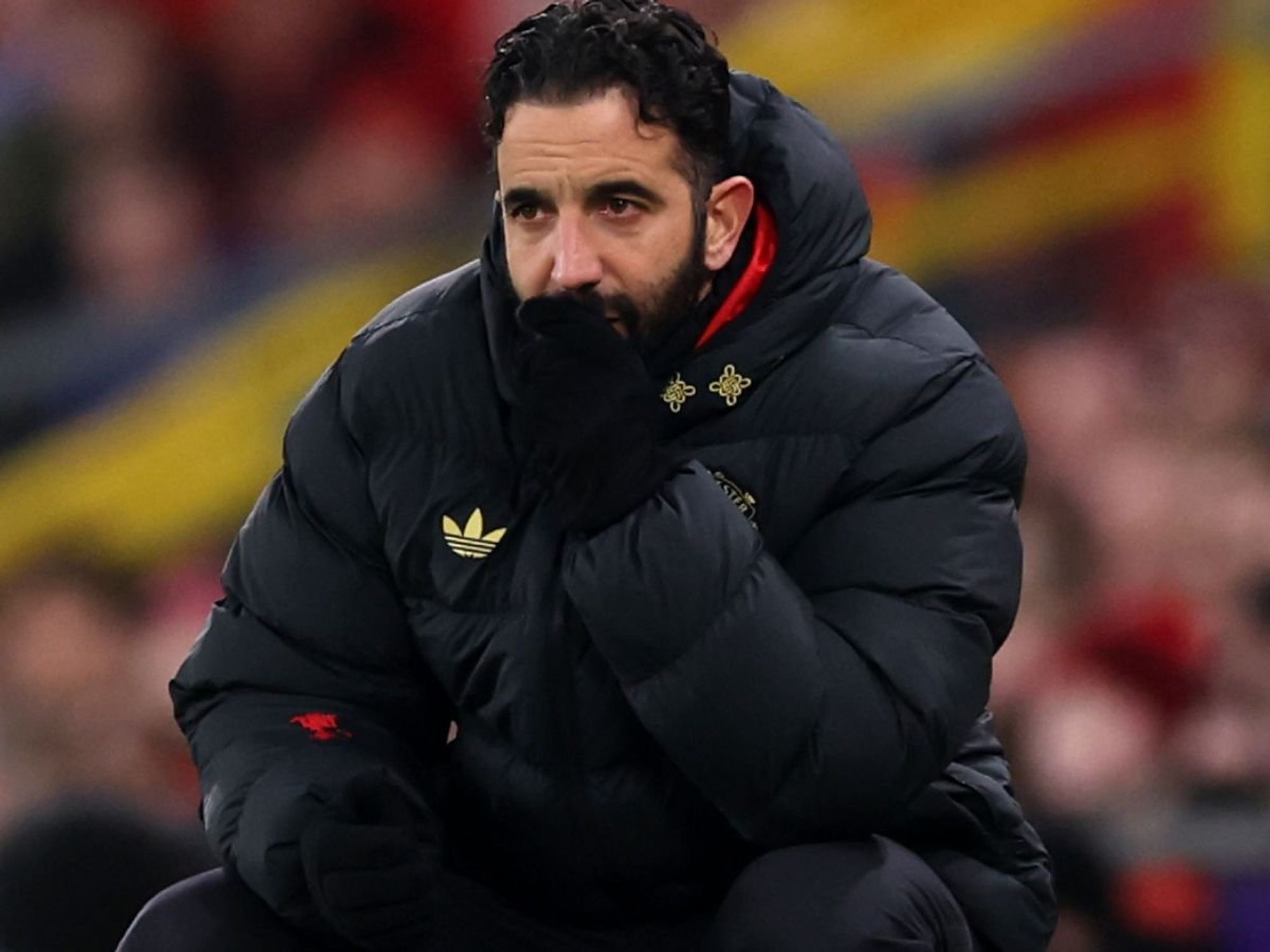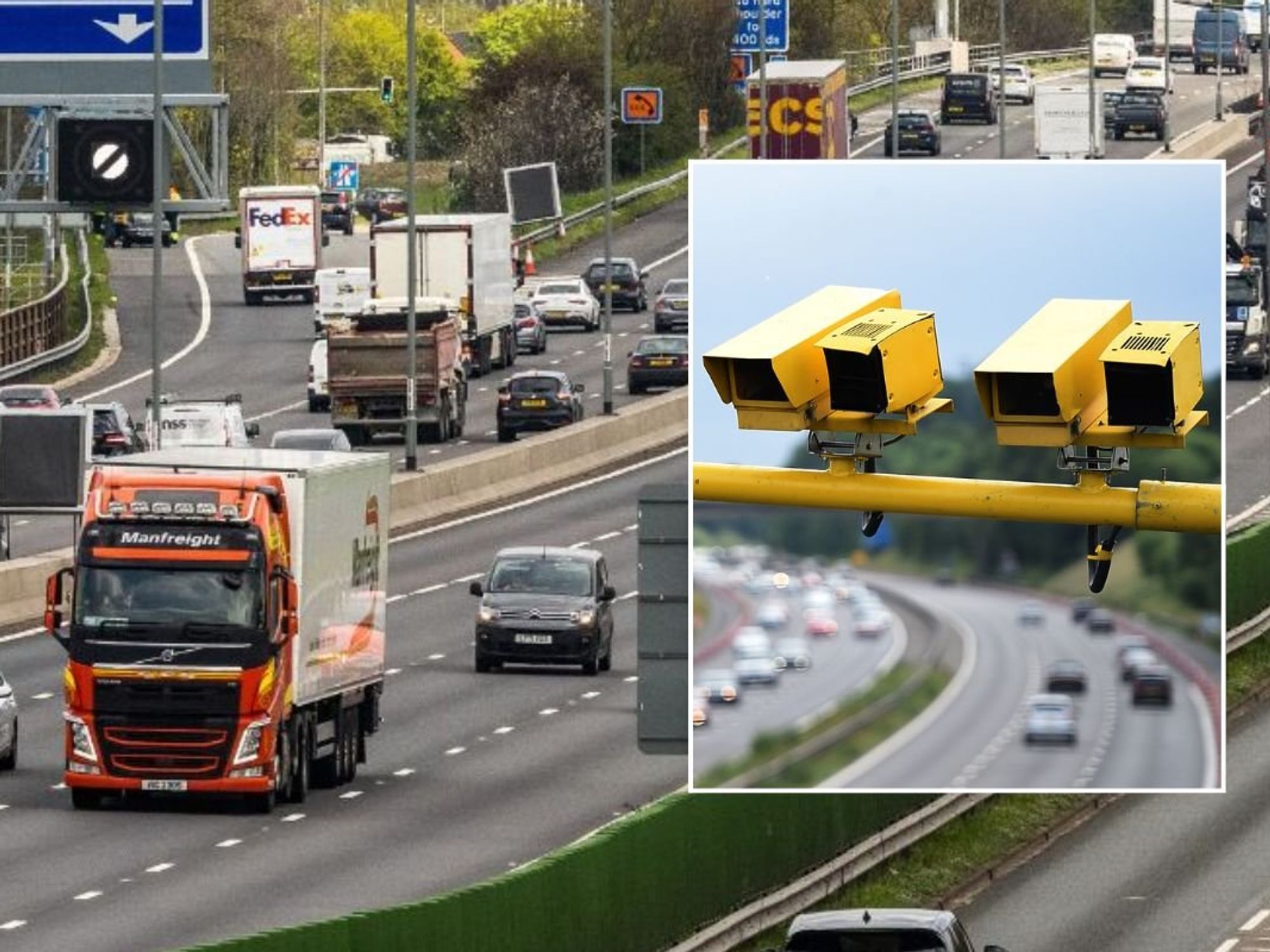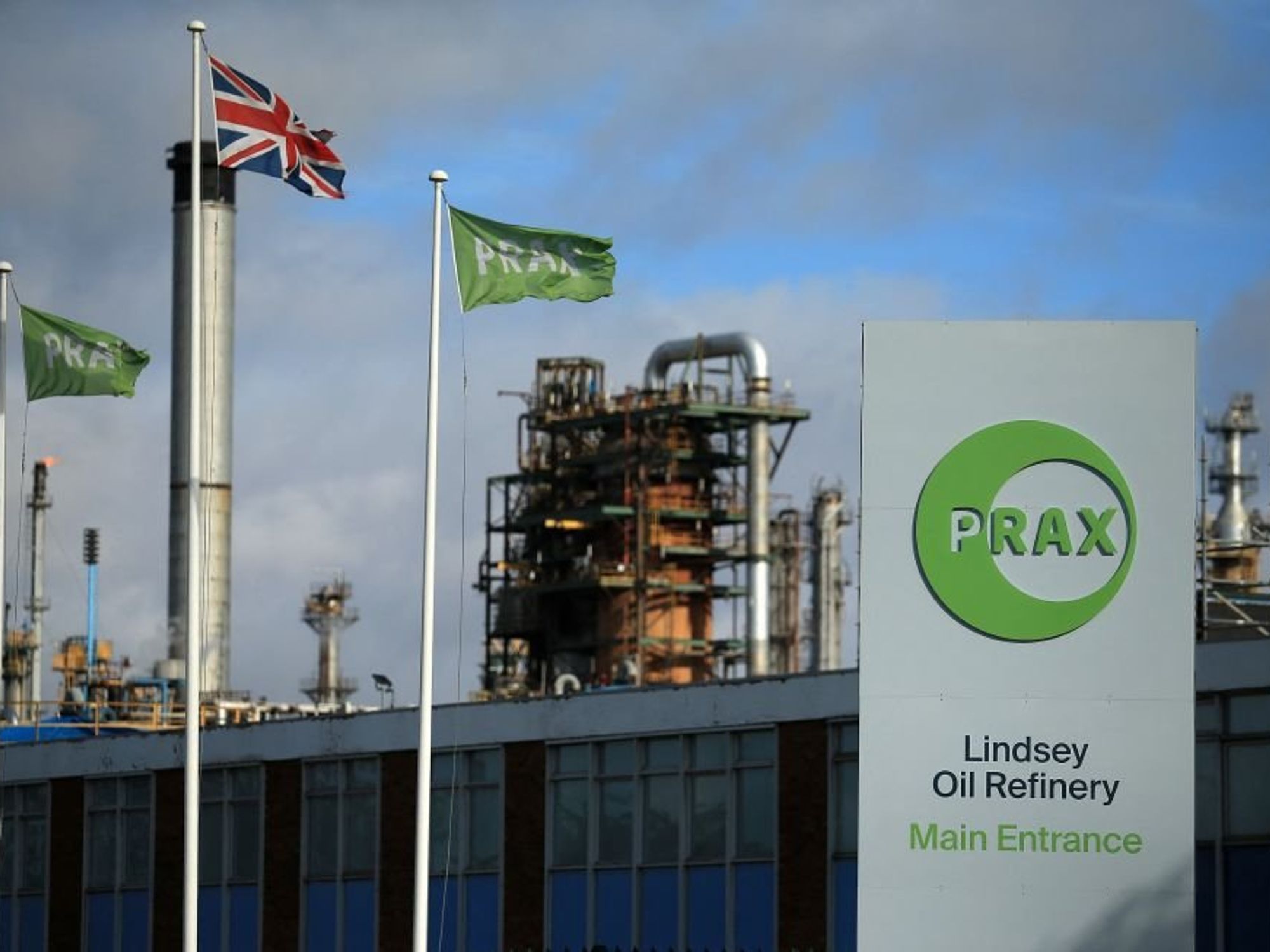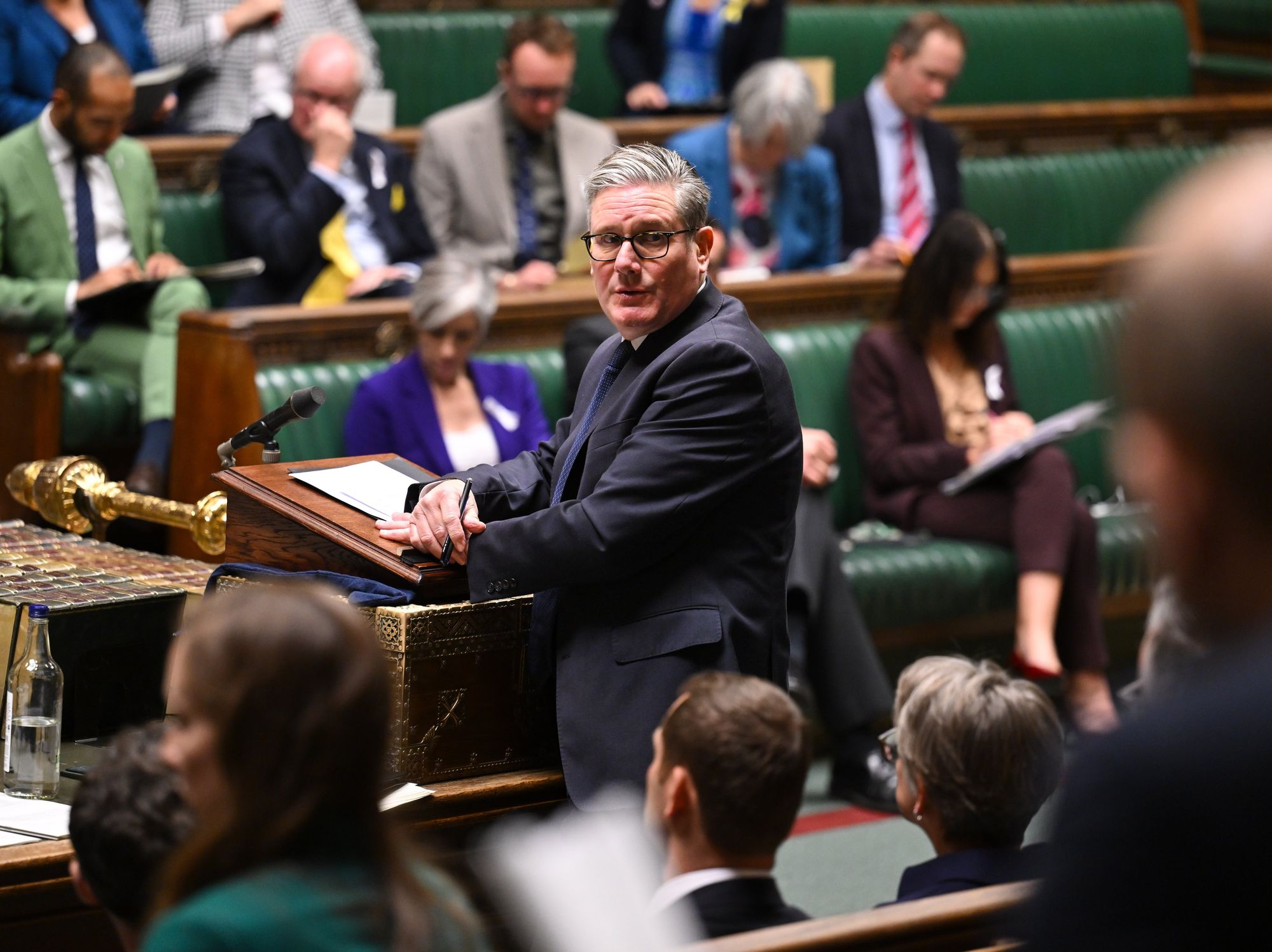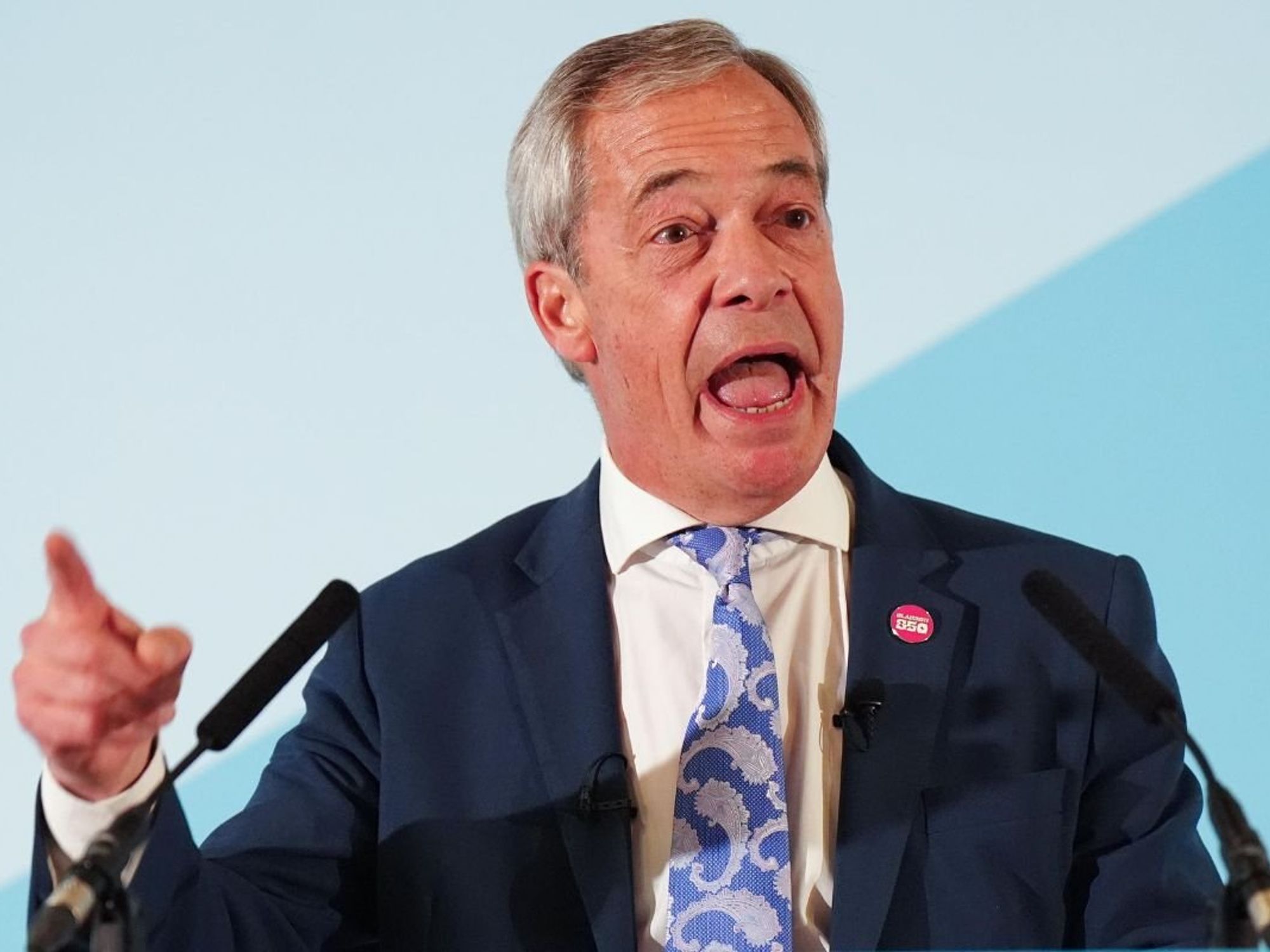Ukrainian combat medic offers insight into life on frontline amid Russian invasion
The medics treat Ukrainian troops, civilians, animals and even injured Russians
Don't Miss
Most Read
A team of Ukrainian combat medics have stepped away from the front lines of the war to share their experiences with the British public as the second anniversary of the Russian invasion of Ukraine draws closer.
A team of four medics were given support by an exhibition from the Ukraine Solidarity Project to give the public better insight into the risks undertaken by frontline combat medics.
As the team drove up to Scotland, the group attracted quite the crowd on a blustery Calton Hill, offering panoramic views of Edinburgh from on high.
Iryna Knyzhnyk, 46, former military linguist turned combat medic, tells members of the public about the largest item in the travelling exhibit - a civilian ambulance irrevocably scarred from Russian attacks.
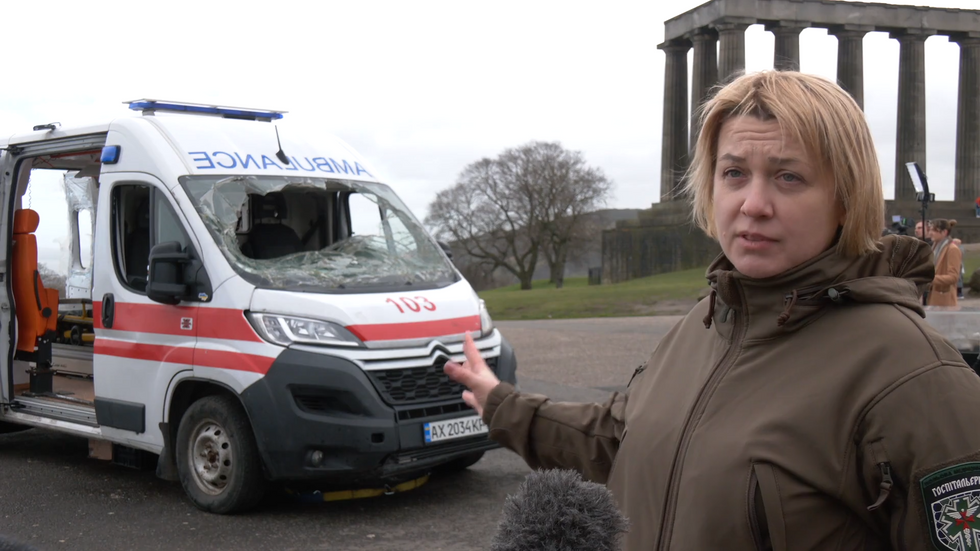
Iryna Knyzhnyk tours UK with her ambulance
|GB News
“This is a civilian ambulance,” she explains, “which normally the military do not use because it is very bright and a very easy target.
“But at the very beginning of the Russian invasion, medics would use everything that we could reach and this ambulance came to one of the villages near Kharkiv to help wounded civilians.
“When medics were out of the car - and they were very lucky to be out of it - it was shelled by Russians.”
Despite the extensive damage to the ambulance, Iryna makes sure to clarify, “this is far from the worst - many, many more look worse than this”.
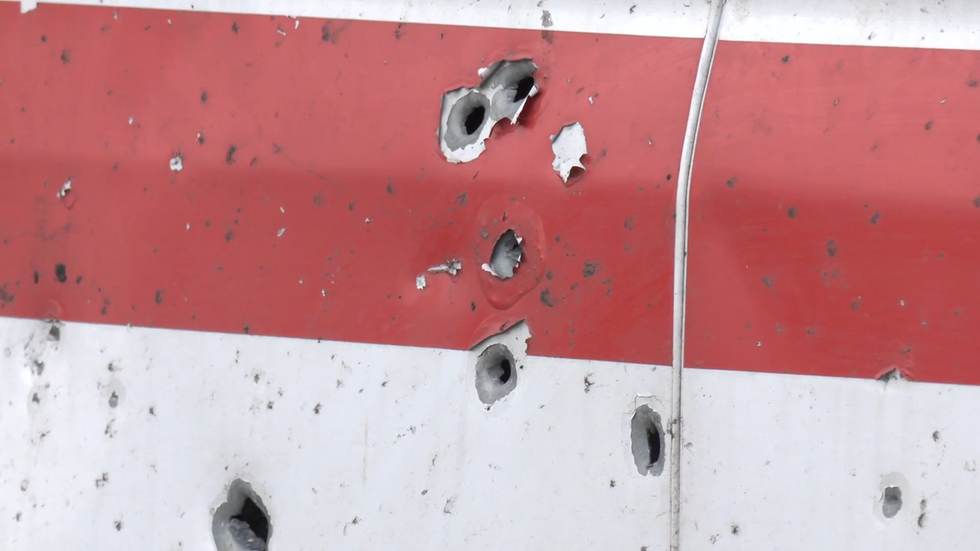
Bullet holes in ambulance
|GB News
More than fifty bullet holes pucker its driver-side flank side, its windscreen crumpled and shattered and the unforgiving impact of a Russian attack ensuring its days of driving injured to safety are in the rearview mirror, which incidentally was also damaged in the explosion.
Joining the ambulance at sites around the country are combat medals, expired bullet-proof protection and a combat medic’s helmet damaged beyond repair.
The Ukraine Solidarity Project intends for their ten-day tour of the UK to let the public see “the real-life consequences of Russia’s relentless attacks”, insisting that “saving lives must be protected, not targeted”.
Protests will be held around the country on Saturday, February 24, to mark the 2nd anniversary of the invasion, such as the Edinburgh protest outside the Russian consulate organised by the Ukrainian Victory Campaign.
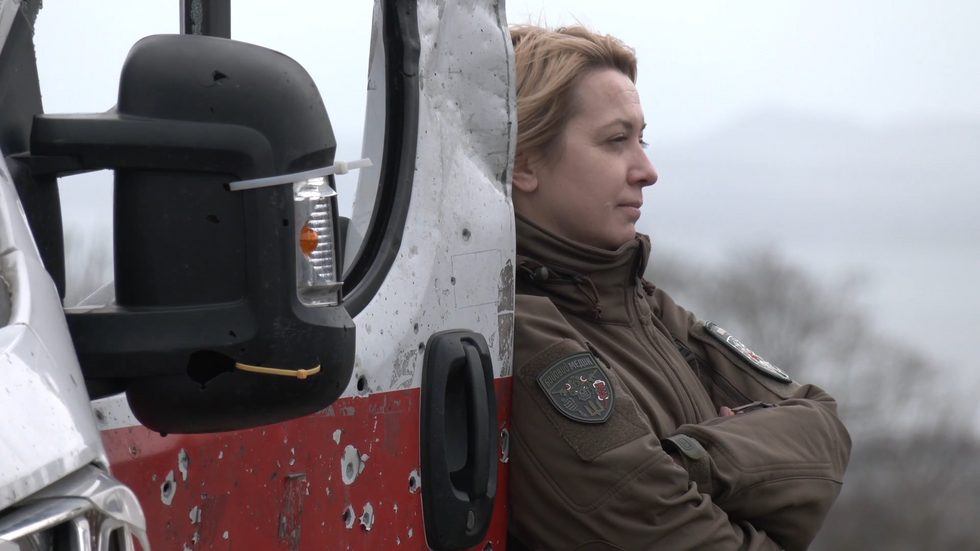
Iryna Knyzhnyk with her ambulance
|GB News
Speaking ahead of the event this weekend, organiser Maryan Pokhylyy says, “We know there are going to be protests all around the country - around the world, in fact.
“This is the best way for us to stand up to Russian aggression and acts of terrorism in Ukraine.”
Combat medics save a broad spectrum of lives: Ukrainian soldiers; civilians; animals; and even injured Russians.
Iryna shares the compassionate thoughts of a younger colleague, who knew exactly how to act when faced with a wounded enemy.
“My colleague, she was 21 years old at the time,” explains Iryna.
“She told me, ‘it doesn’t matter who he is, it matters who we are’.
“We are humans, they are humans and we can not leave a person without help.”
Since the beginning of the war in Ukraine, the former Soviet Union nation has lost 25 per cent of its GDP, so aid and assistance from the global community is essential to the stability of Ukraine’s defences.
“Unfortunately, Ukraine does not have such huge resources as Russia,” says Iryna.
“I’m afraid that we won’t stand to get a result without Western help for long.
“You could be a huge hero, you can be very well taught and very skilful, but if you run out of ammo or run out of any other resource and your enemy has not, then it’s only a question of time.
“We don’t have the human resources, vehicles or medical resources - even our medical facilities, we don’t have enough for the number of casualties we have now.
“It’s a big problem so we need their support urgently.”
Iryna and the other medics continue their 10-day tour of the UK, commemorating the second anniversary of the war.


